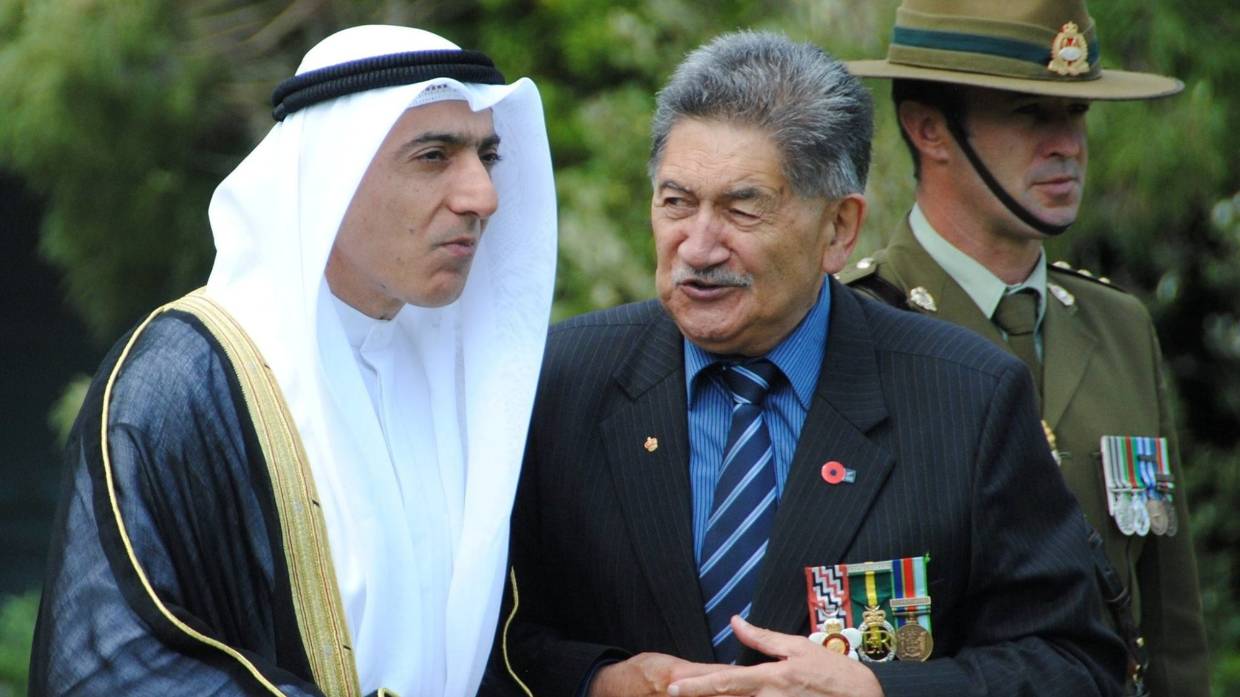
Kuwait has removed its ambassador from New Zealand as police sought to charge him for assaulting a woman.
The Ministry of Foreign Affairs and Trade (MFAT) tried to get Kuwait to waive immunity for the diplomat but this was refused, meaning police could not charge the man following the alleged assault in central Wellington.
This led to MFAT asking the Kuwait government to withdraw the diplomat – understood to be ambassador Ahmed Bader Razouqi – from New Zealand. More than three months after the alleged assault, the diplomat was quietly shuffled out of New Zealand and faced no charges.

Figures released by MFAT under the Official Information Act show that in five years, MFAT has asked five times for foreign governments to waive immunity. Only once was the waiver granted.

Police this week confirmed they were called to a home in cental Wellington early on a Wednesday morning, in November 2015. A woman there had received minor injuries.
“This involved an allegation of assault by a diplomat from the Embassy of the State of Kuwait,” police said. “The incident was investigated, and police liaised with MFAT during the course of their enquiries.
“Police were unable to progress the matter further as a request to waive diplomatic immunity was declined.”

The victim of the alleged assault was offered “the normal support which we give victims”, police said.
Foreign Affairs Minister Gerry Brownlee said diplomatic immunity was a “long-established international framework” that also applied to New Zealand diplomats abroad, “often in countries with very different law and justice systems”. “As far as I’m aware this incident has not affected the diplomatic relationship New Zealand has with Kuwait.”
He would not comment on whether political pressure was brought to play to get the diplomat to face charges or whether New Zealand needed to be more forceful in getting governments to waive immunity.

But Labour foreign affairs spokesman David Parker said the New Zealand government should publicise cases when foreign governments refused to waive immunity. “It’s a matter of public interest to New Zealand and should be made public.”
At the Kuwait Embassy in downtown Wellington, staff would not allow a journalist to enter and – via intercom – said they considered the matter a “closed case” that they did not want to engage with.
Neither police nor MFAT would identify the diplomat but it is understood the man police wanted to charge was Ahmed Bader Razouqi, who had only been in the post since February 2015.

Razouqi began his career with the Kuwait Ministry of Foreign Affairs in 1987 and had postings in Mauritania, Rome, London, Washington DC and Kenya, and prior to arriving in New Zealand, he had been the Ambassador to Venezuela.
It was January 2016 when police asked MFAT to seek a waiver from immunity from the Kuwaiti government.
This would have allowed police to charge the diplomat but the Kuwait government refused the waiver, a statement from MFAT said.

MFAT then asked Kuwait to withdraw the diplomat from New Zealand, which it did. It was early April 2016 – more than five months after the alleged assault – that the diplomat left New Zealand.
Statistics NZ data shows exports to the oil rich Gulf nation were worth $66.3 million in 2016, largely driven by meat, dairy, eggs, honey, and other “edible products of animal origin”. In the same year, imports from Kuwait totalled a little more than $4m.
Kuwait’s strategic location and vast oil reserves make it one of the world’s richest countries per capita.
Victoria University associate law professor Alberto Costi said diplomatic immunity was not a free pass for diplomats to break local laws as hosting governments could still get them kicked out of a country.
It allowed diplomats to do their job without undue pressure from local authorities, he said.
Governor-General Dame Patsy Reddy welcomed new Kuwaiti ambassador, Ahmad Salem Alwehaib, in October 2016.
The Kuwait incident came after Malaysian military official Muhammad Rizalman bin Ismail was extradited to New Zealand after he defecated outside a Wellington woman’s home and indecently assaulted her in 2014.
He left New Zealand shortly after, but had to return to face trial.
In March 2017, the United States refused to waive immunity for one of its diplomats who was wanted for questioning in relation to an assault in Lower Hutt.
Colin White, who reportedly worked with the GCSB spy agency, left New Zealand in March.
HOW DIPLOMATIC IMMUNITY WORKS
* Under international law, foreign diplomats in New Zealand – and New Zealand diplomats abroad – have diplomatic immunity from any criminal processes, including investigation and prosecution.
* MFAT tells diplomatic missions they are expected to comply with New Zealand law and should waive immunity if there are allegations of a serious crime – one that could trigger a jail term of a year or more.
* New Zealand police are unable to interview a diplomat without a waiver from the diplomat’s government. MFAT, at the request of police, can request that waiver.
* A waiver may be provided in stages, with an initial waiver to enable interviews to take place in order for the Police to determine whether prosecution is warranted.
* When a waiver is refused, MFAT may ask the diplomat’s government to withdraw the diplomat from New Zealand.
* Immunity is owned by states, not by the individual diplomats, meaning governments can invoke immunity but individuals cannot.
Kuwait ambassador leaves NZ before police could charge him with assaulting woman

